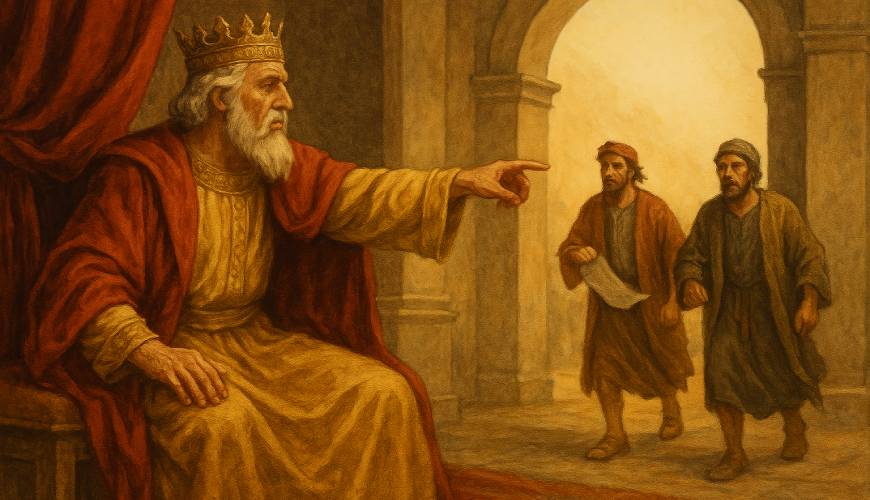The Parable of the Wedding Feast: A Theological and Expository Analysis

The Parable of the Wedding Feast, found in Matthew 22:1-14, presents profound theological truths about God’s invitation to salvation, human responsibility, and divine sovereignty. It highlights the rejection of Israel, the opening of salvation to all, and the necessity of being clothed in the righteousness of Christ. This analysis will examine the parable verse by verse while integrating scriptural connections that reveal its broader theological significance.
Exposition of the Parable and Theological Themes
- The Rejection of the Initially Elected Group
“The kingdom of heaven is like a king who prepared a wedding banquet for his son. He sent his servants to those who had been invited to the banquet to tell them to come, but they refused to come.” (Matthew 22:2-3)
This represents God's covenant with Israel. They were the chosen nation (Deuteronomy 7:6), but their rejection of Christ (John 1:11) signifies their refusal to accept the ultimate fulfillment of God’s promises.
“Then he sent some more servants and said, ‘Tell those who have been invited that I have prepared my dinner: My oxen and fattened cattle have been butchered, and everything is ready. Come to the wedding banquet.’ But they paid no attention and went off—one to his field, another to his business.” (Matthew 22:4-5)
God’s long-suffering nature is displayed here (2 Peter 3:9). He persistently calls people to Himself despite their indifference. The distractions of the field and business signify worldly preoccupations that keep people from responding to God's call (Mark 4:18-19).
“The rest seized his servants, mistreated them and killed them. The king was enraged. He sent his army and destroyed those murderers and burned their city.” (Matthew 22:6-7)
This echoes Israel’s persecution of prophets (Matthew 23:37) and foreshadows the destruction of Jerusalem in AD 70 as a judgment (Luke 19:41-44).
- The Long-Suffering of God and the Open Invitation
“Then he said to his servants, ‘The wedding banquet is ready, but those I invited did not deserve to come. So go to the street corners and invite to the banquet anyone you find.’” (Matthew 22:8-9)
This shift signifies the inclusion of the Gentiles (Romans 11:11-12). The gospel is now extended to all people, regardless of prior status (Acts 10:34-35).
- The Condition for Admission: Christ’s Righteousness
“But when the king came in to see the guests, he noticed a man there who was not wearing wedding clothes. He asked, ‘How did you get in here without wedding clothes, friend?’ The man was speechless.” (Matthew 22:11-12)
In ancient customs, wedding garments were provided by the host. This represents the righteousness of Christ (Isaiah 61:10, Philippians 3:9). Salvation is not by works (Ephesians 2:8-9) but through faith in Christ, who clothes us in His righteousness (2 Corinthians 5:21).
“Then the king told the attendants, ‘Tie him hand and foot, and throw him outside, into the darkness, where there will be weeping and gnashing of teeth.’” (Matthew 22:13)
This is a solemn warning: mere outward association with the gospel is not enough. True acceptance requires being clothed in Christ (Titus 3:5-7).
“For many are called, but few are chosen.” (Matthew 22:14)
This verse encapsulates the doctrine of divine election. The gospel call is extended widely, but only those whom God regenerates respond in faith (Romans 8:30).
Theological Connections
A. God's Sovereignty and Human Responsibility in Salvation
- The invitation is real and universal (Romans 10:13, 1 Timothy 2:3-4).
- People reject the call by their own choice (John 5:40, Acts 7:51).
- God’s plan is not thwarted by human rejection (Romans 9:6-8).
B. Limited and Unlimited Atonement
- Christ’s atonement is sufficient for all but efficient for the elect (John 10:11, John 6:37-39).
- The invitation is for all, but not all accept (John 3:16-19).
C. Justification by Faith, Not Works
- The wedding garment represents imputed righteousness (Isaiah 64:6, Romans 3:21-22).
- Works do not grant access to the banquet (Galatians 2:16).
Conclusion: The Urgency of the Invitation
This parable highlights:
- The rejection of the initially elected group (Israel) and the extension of salvation to all.
- God’s patience and sovereignty in ensuring His purposes are fulfilled despite human rejection.
- The necessity of Christ’s righteousness for entry into the kingdom.
The invitation stands open. The question remains: will we accept it on God’s terms, clothed in Christ’s righteousness, or will we attempt to enter by our own means and be cast out?
Final Exhortation
May we respond in faith, recognizing that salvation is by grace alone through faith alone in Christ alone. Let us not only accept the invitation but live in a manner worthy of the calling (Ephesians 4:1).
For many are called, but few are chosen.